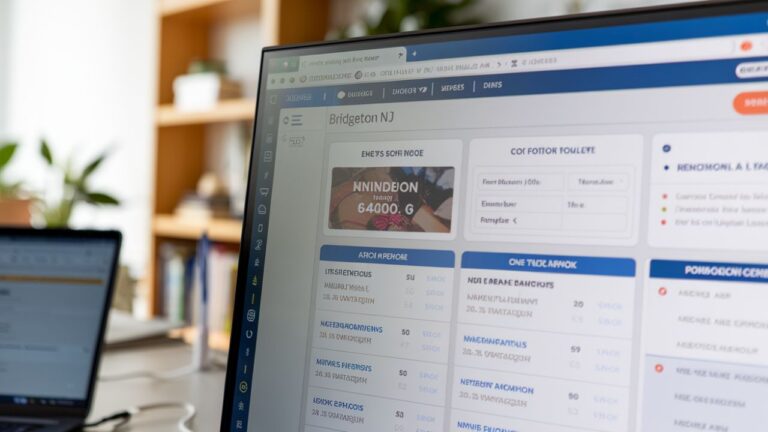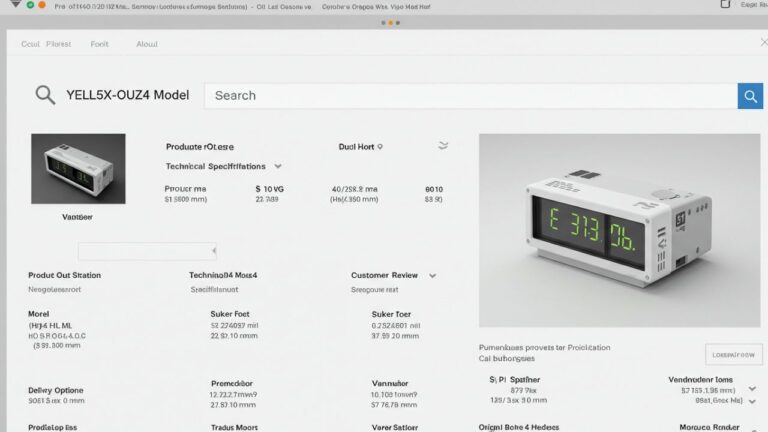
UCMO edu Blackboard
Introduction
The comprehensive digital learning platform UCMO edu Blackboard has fundamentally transformed educational experiences for thousands of students at the University of Central Missouri. Dedicated faculty members regularly utilize this innovative system to deliver engaging course content and facilitate meaningful interactions beyond traditional classroom limitations effectively. Moreover, the platform serves as a central hub where students access course materials, submit assignments, participate in discussions, and track their academic progress throughout each semester. Furthermore, UCMO Blackboard integrates seamlessly with other university systems to create a cohesive digital ecosystem supporting various learning styles and educational objectives comprehensively. Additionally, continuous improvements to the platform reflect the university’s commitment to educational excellence and technological innovation in higher education consistently.
Platform Overview
The intuitive interface design of UCMO edu Blackboard prioritizes user experience through logical organization and straightforward navigation paths for both students and instructors. Different course sections remain clearly separated yet accessible through a unified dashboard, helping users manage multiple classes without confusion or disorganization. Furthermore, immediate notifications alert students about upcoming deadlines, new announcements, grade postings, and other important updates related to their academic responsibilities promptly. Meanwhile, customization options allow faculty to tailor course pages according to specific teaching methodologies and subject matter requirements flexibly.
Consistent design elements throughout the platform reduce the learning curve for new users while providing advanced functionality for experienced community members simultaneously. The responsive layout adapts seamlessly across various devices including laptops, tablets, and smartphones, ensuring students can access critical resources regardless of their location or preferred technology. Additionally, accessibility features accommodate diverse learning needs through screen reader compatibility, keyboard navigation options, and adjustable display settings for users with different abilities. Consequently, UCMO Blackboard promotes inclusivity while maintaining comprehensive functionality through thoughtful design choices and universal access principles effectively.
Core Functions for Students
Centralized course content organization allows students to locate lectures, readings, multimedia presentations, and supplementary materials through intuitive folder structures and search capabilities. Assignment submission tools support various file formats while providing confirmation receipts that verify successful uploads and timestamp information for deadline verification purposes. Furthermore, integrated calendar functions consolidate due dates across multiple courses into a single view, helping students plan their academic schedules and manage competing priorities efficiently. Meanwhile, automated grade calculations offer real-time performance insights that help students track their progress toward course objectives throughout the semester.
Discussion boards facilitate meaningful academic conversations outside classroom hours through threaded responses that organize complex topics into manageable conversation flows logically. Collaboration tools enable group projects through shared document spaces, specialized discussion areas, and joint submission options that recognize teamwork appropriately. Additionally, secure testing environments support various assessment formats including multiple choice, essay, short answer, and mixed question types with customizable time limitations and attempt restrictions. Consequently, students experience comprehensive academic support through diverse digital tools designed specifically for higher education contexts and contemporary learning approaches effectively.
Faculty Capabilities and Resources
Course design wizards guide instructors through content creation processes, offering templates and organizational structures that maintain consistency while allowing individual customization and creativity. Grading interfaces streamline feedback provision through rubric integration, inline commenting capabilities, and automatic grade posting that reduces administrative burdens considerably. Furthermore, plagiarism detection tools help maintain academic integrity by comparing student submissions against extensive databases of published works and previously submitted assignments systematically. Meanwhile, attendance tracking features monitor student participation through various metrics including login frequency, content access patterns, and engagement with course materials over time.
Content management systems allow faculty to control material visibility through scheduled releases, conditional availability, and selective access parameters based on individual student progress or group membership. Multimedia integration supports diverse content types including video lectures, interactive presentations, audio recordings, and embedded external resources from reputable educational repositories and research databases. Additionally, assessment analytics provide detailed insights regarding question effectiveness, knowledge gap identification, and overall class performance across different evaluation instruments. Consequently, faculty members make data-driven instructional decisions while maintaining efficient course management practices through intuitive administrative tools and comprehensive oversight capabilities consistently.
Mobile Experience
The dedicated UCMO Blackboard mobile application offers streamlined access to essential platform features through interfaces specifically designed for smaller screens and touch-based interactions. Push notifications deliver time-sensitive information directly to student devices, ensuring important announcements and approaching deadlines receive appropriate attention regardless of login schedules. Furthermore, offline content access allows students to download and review course materials during periods without internet connectivity, supporting learning continuity during travel or in areas with limited network coverage. Meanwhile, quick-response tools enable students to participate in discussions, check grades, or review feedback without requiring full desktop functionality unnecessarily.
Mobile-optimized assessments adapt testing experiences for smaller screens while maintaining security protocols and academic integrity standards consistently across different access methods. Simplified navigation prioritizes frequently used features through intuitive touch patterns and gesture controls that minimize typing requirements on mobile keyboards. Additionally, media optimization automatically adjusts video quality and file download sizes based on connection strength and device specifications to prevent excessive data usage unnecessarily. Consequently, students maintain continuous engagement with their academic responsibilities through convenient mobile access that complements rather than replaces traditional platform functionality effectively.
Communication Tools
Announcement systems deliver critical information to entire classes, specific groups, or individual students with formatting options that highlight particularly important communications appropriately. Private messaging capabilities facilitate confidential conversations between students and instructors regarding sensitive topics including grades, personal circumstances, or individual learning needs discreetly. Furthermore, email integration allows users to receive platform notifications through preferred external accounts without requiring constant direct logins to maintain awareness of important developments. Meanwhile, video conferencing tools support virtual office hours, study groups, and remote presentations through integrated solutions that maintain privacy and security standards consistently.
Group communication channels create dedicated spaces for project teams, study groups, or special interest communities within larger course populations effectively. Feedback mechanisms collect student responses regarding course materials, instructional effectiveness, and platform functionality through anonymous surveys and structured evaluation instruments periodically. Additionally, automated notifications remind students about upcoming deadlines, unread messages, or recent grade postings through customizable alert preferences that prevent information overload. Consequently, UCMO Blackboard fosters continuous communication among educational stakeholders through diverse channels designed for different purposes and communication preferences comprehensively.
Assessment and Grading Features
Diverse question types support various assessment approaches including multiple choice, true/false, matching, ordering, short answer, essay, and multimedia response formats comprehensively. Automated grading systems score objective questions immediately while organizing written responses for efficient manual evaluation through intuitive grading interfaces and annotation tools. Furthermore, secure testing environments employ various protocols including lockdown browsers, randomized question sequences, time limitations, and access codes to maintain academic integrity during remote assessments. Meanwhile, gradebook functions organize evaluation data logically while calculating course averages through customizable weighting systems that reflect instructional priorities appropriately.
Statistical analysis tools provide faculty with performance metrics across different assessment instruments, helping identify particularly challenging concepts or potential instructional gaps requiring additional attention. Rubric builders allow instructors to create detailed evaluation frameworks with specific criteria and performance level descriptions that clarify expectations and standardize grading approaches. Additionally, peer assessment capabilities engage students in evaluative processes through structured frameworks that develop critical thinking while reducing faculty workload for appropriate assignments. Consequently, UCMO Blackboard supports comprehensive evaluation practices through tools designed specifically for educational contexts and academic assessment requirements effectively.
Content and Resource Management
Centralized file repositories organize course materials logically while providing version control features that prevent confusion regarding current documents and outdated resources clearly. Learning module builders sequence content logically through connected pages that guide students through complex topics with integrated navigation and progress tracking features. Furthermore, media integration supports diverse resource types including videos, audio files, interactive simulations, and external web content through consistent embedding and playback functionality. Meanwhile, conditional release options make content availability contingent upon specific criteria including completion of prerequisite activities, achievement of minimum scores, or reaching particular calendar dates.
Content collection features allow instructors to build personal libraries of frequently used materials that can be easily imported across multiple courses and academic terms efficiently. Resource sharing promotes collaboration among faculty through departmental collections and institutional repositories of exemplary educational materials and proven instructional strategies. Additionally, accessibility checkers scan uploaded documents for potential barriers while suggesting modifications that improve compatibility with assistive technologies and accommodation requirements. Consequently, instructors manage diverse educational resources effectively while students experience coherent learning pathways through thoughtfully organized and appropriately sequenced course materials consistently.
Integration with University Systems
Seamless authentication processes connect UCMO Blackboard with university credentials, eliminating multiple login requirements while maintaining robust security protocols and data protection standards. Registration system integration automatically enrolls students in appropriate course sections based on official university records, preventing manual roster management and ensuring accurate class lists consistently. Furthermore, library resource connections provide direct access to academic databases, research journals, and digital collections through embedded links within relevant course modules and reading assignments. Meanwhile, financial systems coordinate access privileges with payment status and registration verification to maintain appropriate service provision aligned with institutional policies.
Campus calendar synchronization displays university events alongside course-specific deadlines, creating comprehensive scheduling resources that help students balance academic responsibilities with broader campus activities and opportunities. Technical support systems offer troubleshooting assistance through integrated help resources, knowledge bases, and direct contact options with specialized personnel for complex issues. Additionally, institutional reporting tools generate administrative data regarding platform usage, student engagement patterns, and instructional practices for program assessment and continuous improvement initiatives. Consequently, UCMO Blackboard functions as an integral component within the broader university digital ecosystem rather than an isolated platform or standalone system effectively.
Learning Analytics and Student Success
Engagement tracking monitors student interaction with course materials through metrics including login frequency, time spent on specific resources, and participation in interactive elements across different course components. Progress visualization tools present achievement data through intuitive dashboards that help students understand their standing relative to course expectations and personal academic goals clearly. Furthermore, early alert systems identify potential academic difficulties through preset triggers based on missed assignments, declining performance patterns, or decreased platform engagement over time. Meanwhile, predictive analytics suggest personalized interventions based on historical data and current performance indicators before minor challenges develop into significant obstacles unnecessarily.
Learning path optimization suggests additional resources based on individual student performance, directing users toward supplementary materials addressing specific knowledge gaps identified through assessment results. Success roadmaps outline milestone achievements and upcoming challenges through visual progress trackers that motivate continued engagement and strategic planning. Additionally, comparative metrics provide context for individual performance within appropriate parameters while maintaining privacy and focusing primarily on personal improvement rather than competition. Consequently, UCMO Blackboard supports student success through data-informed approaches that recognize individual learning patterns while providing timely intervention opportunities and appropriate supportive resources consistently.
Training and Support Resources
Comprehensive tutorial libraries offer step-by-step guides for common platform functions through text instructions, screenshot illustrations, and video demonstrations addressing diverse learning preferences effectively. Interactive training modules allow users to practice specific skills within simulated environments that provide immediate feedback without affecting actual course data or live systems. Furthermore, dedicated support personnel respond to technical issues through multiple communication channels including email, phone contact, live chat, and in-person consultations during business hours. Meanwhile, instructor workshops develop advanced platform skills through hands-on sessions focusing on pedagogical applications rather than purely technical operations contextually.
Frequently asked question collections address common concerns proactively, reducing support requests while empowering users to solve routine challenges independently through searchable knowledge bases. Regular update notifications explain new features and functionality changes through clear language and practical examples that highlight potential benefits for different user types. Additionally, peer support communities connect experienced users with newcomers through moderated forums where common challenges and creative solutions receive thoughtful discussion and collaborative problem-solving approaches. Consequently, stakeholders receive appropriate assistance regardless of technical skill levels or specific platform utilization patterns through diverse support mechanisms and comprehensive resource availability consistently.
Security and Privacy Features
Robust authentication protocols protect sensitive academic information through multiple verification layers that prevent unauthorized access while maintaining convenient legitimate use for registered community members. Data encryption safeguards personal information and academic records during transmission and storage, meeting institutional privacy requirements and regulatory compliance standards consistently. Furthermore, role-based permissions restrict access to sensitive functions and information based on official user classifications including student, instructor, teaching assistant, or administrator designations. Meanwhile, activity logging maintains detailed records of system interactions for troubleshooting purposes and security monitoring without compromising user privacy unnecessarily.
Consent management tools allow users to understand and control information sharing within appropriate institutional parameters and educational necessity guidelines clearly. Regular security audits identify potential vulnerabilities before exploitation opportunities arise through proactive assessment protocols and continuous improvement practices. Additionally, data retention policies balance historical record maintenance with appropriate information lifecycle management through scheduled archiving and secure disposal processes when appropriate. Consequently, UCMO Blackboard protects sensitive academic information while facilitating legitimate educational activities through balanced security measures and thoughtful privacy protections consistently.
Continuous Improvement Processes
Regular platform updates introduce enhanced functionality and security improvements through scheduled maintenance windows designed to minimize disruption to academic activities whenever possible. User feedback mechanisms collect improvement suggestions directly from students and faculty through structured surveys, feature request systems, and usability testing sessions throughout academic terms. Furthermore, benchmarking activities compare current implementations against best practices and emerging trends in educational technology to identify potential enhancement opportunities proactively. Meanwhile, institutional data analysis identifies usage patterns and feature adoption rates that inform development priorities and implementation strategies appropriately.
Pilot testing programs evaluate significant changes with representative user groups before university-wide deployment, ensuring modifications meet actual community needs effectively. Iterative enhancement processes address identified limitations through phased improvements rather than disruptive complete overhauls that might interrupt academic continuity unnecessarily. Additionally, cross-functional committees including technical staff, faculty representatives, and student liaisons collaborate on strategic planning for platform evolution and enhancement prioritization. Consequently, UCMO Blackboard continuously evolves to meet changing educational needs through structured improvement processes and responsive development approaches informed by actual user experiences consistently.
Impact on Teaching and Learning
Pedagogical transformation occurs as instructors leverage platform capabilities to implement active learning strategies, flipped classroom approaches, and blended delivery models beyond traditional instructional limitations. Assessment diversification expands evaluative methods beyond conventional testing through project-based assessments, multimedia submissions, collaborative work products, and authentic demonstration opportunities. Furthermore, communication expansion facilitates meaningful academic discussions outside scheduled class sessions through asynchronous exchanges that provide reflection opportunities and thoughtful dialogue development. Meanwhile, resource enrichment supplements core textbooks with diverse materials including current research, multimedia presentations, interactive simulations, and real-world applications contextually.
Feedback enhancement accelerates the evaluation cycle through efficient grading tools, rubric implementation, and direct annotation capabilities that improve assessment quality while reducing administrative burdens simultaneously. Collaboration extension supports group projects through dedicated virtual spaces where students contribute to shared documents, engage in topic-specific discussions, and coordinate team activities efficiently. Additionally, accessibility improvement ensures educational resources remain available to diverse learners through compatible formats, alternative presentations, and accommodation-friendly design principles universally. Consequently, UCMO Blackboard transforms educational experiences through technology that enhances rather than simply replicates traditional instructional approaches and learning activities comprehensively.
Future Directions and Innovations
Artificial intelligence integration will enhance personalized learning through adaptive content recommendations, automated feedback on routine assignments, and predictive intervention suggestions based on individual progress patterns. Expanded multimedia capabilities will support immersive learning experiences through virtual reality components, interactive simulations, and enhanced video collaboration tools beyond current platform limitations. Furthermore, enhanced mobile functionality will extend learning opportunities through location-based activities, augmented reality applications, and seamless transitions between devices without disrupting educational continuity. Meanwhile, improved analytics will provide deeper insights regarding effective instructional strategies, successful learning patterns, and optimal resource utilization through advanced data modeling techniques.
Blockchain credentialing may provide secure verification of academic achievements through tamper-resistant records that students can share with employers or other educational institutions confidently. Gamification elements could increase engagement through achievement recognition, progress visualization, and strategic incentives aligned with meaningful educational objectives and authentic learning experiences. Additionally, expanded integration will connect classroom activities with real-world applications through industry partnerships, community engagement projects, and authentic problem-solving opportunities contextually. Consequently, UCMO Blackboard will continue evolving through technological advancement and educational innovation while maintaining its essential role within the university’s academic infrastructure consistently.
Conclusion
The comprehensive digital learning ecosystem UCMO edu Blackboard fundamentally enhances educational experiences through technological tools that support diverse teaching approaches and varied learning preferences effectively. Continuous development efforts demonstrate institutional commitment to educational excellence through ongoing investment in digital resources supporting academic achievement and student success initiatives comprehensively. Furthermore, robust functionality across multiple devices ensures that learning continues beyond physical classrooms through accessible content and meaningful interactions regardless of location or schedule limitations. Meanwhile, integrated support systems and extensive training resources help community members maximize platform benefits while minimizing potential technological barriers to educational engagement consistently.
Faculty members leverage powerful instructional tools to create engaging learning environments that combine rigorous academic standards with innovative delivery methods and meaningful assessment strategies appropriately. Students develop essential digital literacy skills alongside subject matter expertise through regular interaction with contemporary educational technology similar to professional tools encountered after graduation. Additionally, university administrators gain valuable insights regarding institutional effectiveness through comprehensive data collection and analytical tools supporting evidence-based decision making and strategic planning processes. Consequently, UCMO edu Blackboard represents more than merely a digital platform but rather an essential component of the modern educational experience at the University of Central Missouri enhancing academic quality and supporting institutional excellence consistently.







